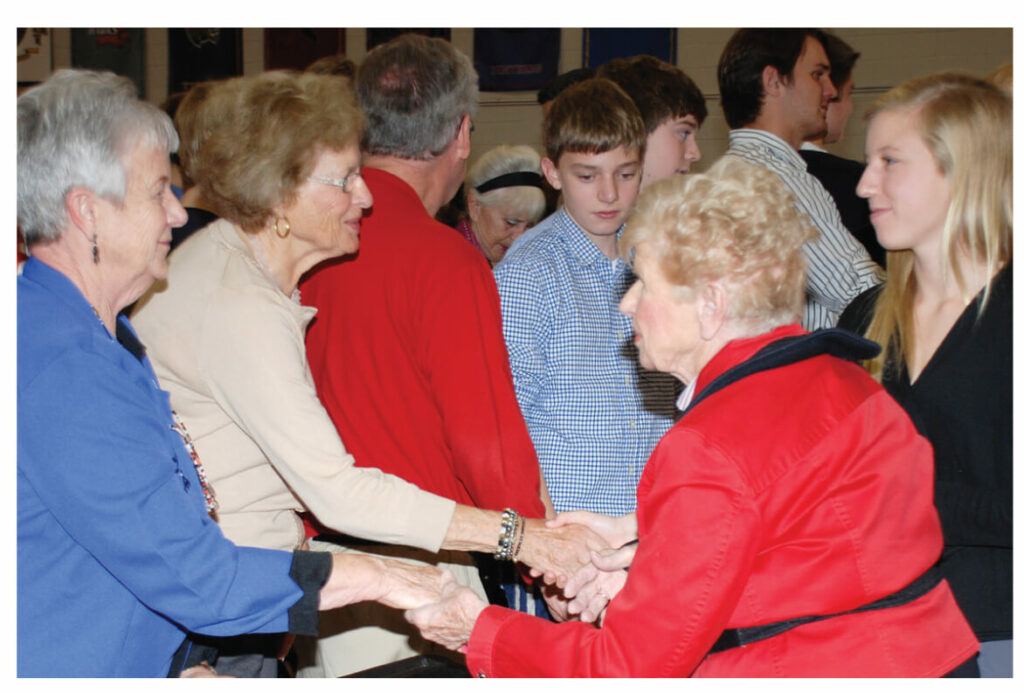
When Jesus comes among his fearful disciples in Sunday’s gospel, he gives them peace, purpose, and animating Spirit. In John’s gospel the giving of the Spirit is an Easter event, part of Jesus’ glorification and return to God, part of his followers taking up his mission. It takes place on the evening of the first Easter Sunday.
The gospel tells us Jesus’ friends have created space where they can gather, pray, and grasp the unfolding events. Mary Magdalene reports Jesus’ tomb empty. The beloved disciple believes Jesus is risen. Peter is silent. Mary Magdalene stays at the tomb grieving where she meets Jesus risen and returns to the community to announce, “I have seen the Lord.”
When they lock themselves in a room together, Jesus’ friends are also locking out the Jewish leaders who had the Romans put Jesus to death. Jesus’ followers are all Jews; the people they fear are their religious leaders who found Jesus a threat.
Jesus’ disciples are ordinary Jewish people. None among them is a learned teacher of Israel’s scriptures or a landowner with wealth. They come from the farming and fishing villages of Galilee. We who venerate these disciples as saints and apostles of our 2000-year-old Church need to remember their humble origins and not see them in the gilded clothing of church statues.
Among these humble and very human disciples are some whose feet Jesus washed at the last supper. Among them are some who fled when Jesus was arrested and some who stood at Jesus’ cross as he died. Among them is Peter, who denied he knew Jesus at his trial and made nothing of the empty tomb that Mary Magdalene took him to see on Easter morning.
- If you have a group, consider speaking and praying as one of Jesus’ followers and dramatize the Easter evening together.
Presence and peace are Jesus’ first gifts. He lets his friends see the wounds in his hands, feet, and side. This intimate act demonstrates for every hearer of the story that the risen Jesus is the crucified Jesus.
In this Easter appearance Jesus gives his friends purpose, which makes the passage a fitting Pentecost gospel. Jesus sends them as the Father sent him. He commissions them and us to continue his mission. For this purpose Jesus breathes his animating Spirit upon them just as the Creator breathed life into the first humans in Genesis 2.24.
The invisible, enlivening breath points to the mystery of divine energy in us. The Spirit in whom we live, move, and have being immerses us in the dynamic love of the Trinity.
We experience God as Spirit continuously present within our own spirits, in relationships among us, and in the events of our history. The Spirit is the giver of our lives. The Spirit lives in, with, and among us in sorrows and joys, in threats and wonders, tragedies and reunions, breakups and breakthroughs, in mourning and in yearning, in rage and delight.
People too often attribute their successes to God and their failures to themselves. When things go well, we often say God did it. It’s not our work. But it is. The Spirit does not work apart from our human effort. The Spirit permeates our lives, our anguish as well as our joy, all that we struggle with as well as all that comes easy.
- When have you been aware of the Spirit’s presence in anguish? In joy?
- What nudgings of the Spirit do you perceive recurring in you? How do you respond?
- What gifts of the Spirit do you recognize in your actions toward your neighbors?
The coming of the Spirit in Sunday’s gospel doesn’t involve dramatic tongues of fire, strong wind, and speaking in many languages. To his disciples who gather, feeling fear and shame on this Easter evening, Jesus brings the call to become a reconciling community that forgives or retain sins. Most of us assume only pope, bishops, and priests have such power, but here the whole gathered community receives this charge. Without forgiving, hurts and failures can fester in both the doer and the receiver.
A community that continues in Jesus’ name must be a forgiving people. Forgiving others creates life-giving bonds. Forgetting hurts and grudges frees us for loving one another. Holding on to hurts and grudges keeps us bound and apart.
The risen Jesus forgives and frees his disciples of their fear to become a forgiving presence in our world. He missions the community and us to spread the joy and peace they share.
- How has being forgiven changed you? How has it made you more forgiving?
- How has forgiving someone changed you?
- What peace is within your power to give to someone this week?
